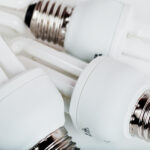
The average American produces roughly 5 pounds of garbage daily, which adds up to nearly 1 ton of trash annually. With so much waste, many items can unfortunately be disposed of improperly — or illegally. Depending on where you live, you may find yourself on the wrong side of the law for compromising the community’s and environment’s safety, resulting in hefty fines and other legal repercussions. Avoid this problem by excluding these items from your trash.
Batteries
Batteries should never be thrown out in the garbage because they can corrode and seep hazardous materials. Look into local hazardous waste sites and municipal drop-off events to get rid of old batteries. You can often recycle the batteries at an electronics store if they are rechargeable. Some jewelers accept old watch batteries, while many automotive stores will recycle dead car batteries.
Electronics
Electronics, such as computers, cable boxes, cell phones, and TVs, contain hazardous materials like lead, mercury, and arsenic and should not be thrown in your trash. Charities accept donations of items still in working condition, while municipalities often host drop-off events to dispose of potentially hazardous materials. Additionally, retailers such as Staples offer free recycling programs.
 Tires
Tires
Tires contain heavy metals, can easily catch fire, and take up valuable landfill space. For these reasons, many local sanitation departments won’t allow you to throw out tires with the regular garbage. You can recycle old tires at local auto shops, which may be able to retread them, or simply recycle them in home projects, such as tire swings or garden planters.

Fluorescent Light Bulbs
While incandescent and halogen bulbs are safe to include in the regular trash, fluorescent bulbs and light tubes must be treated with extra caution. Fluorescent light bulbs contain low levels of mercury, a toxic heavy metal. While the total amount of mercury is small, it is enough to cause significant damage if the bulb leaks, especially if it seeps into the local water supply. Home improvement stores such as Home Depot and Lowe’s offer recycling services for fluorescent lights, as do many local sanitation departments.
Oil-Based Paint
While latex paint can be thrown away with regular trash, getting rid of oil-based paints isn’t as simple because they can contaminate soil or the local water supply. Many municipalities host hazardous drop-off events where you can bring your old paint, and some charities accept paint donations. You can also visit PaintCare.org to find disposal sites in your state.
Motor Oil
It’s against the law in many states to dispose of motor oil by pouring it down the drain or into a sewer grate — doing so can cause serious environmental harm. Many companies that sell motor oil are required by law to accept unused oil. This includes gas stations, car dealerships, and mechanics.
Smoke Detectors
Some smoke detector models contain trace amounts of the radioactive material Americium-241. While this isotope is safe for humans when contained within a working smoke detector, it can be hazardous if the device is damaged. If your smoke detector contains Americium-241, contact the original manufacturer to see if you can mail them old smoke detectors for recycling. You can also take the smoke detector to a local hazardous waste site for proper disposal.
Bennett Kleinman, Better Report

